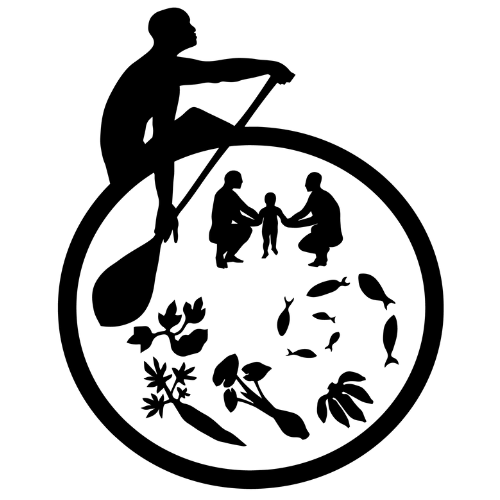Message from the CHL Director
Aloha!
 We have entered Year 2 of the CHL Program.
We have entered Year 2 of the CHL Program.
I’m pleased to introduce you to the evolved CHL team that is facilitating CHL Program activity throughout the Pacific. Please see our Yearbook by clicking here. We look toward our partnerships with many, as we support colleges, preschools, communities and others to organize and change in ways that will enhance healthy living for young children.
- Dr. Rachel Novotny
- Principal Investigator and Program Director, Children’s Healthy Living Program
American Samoa
CHL American Samoa
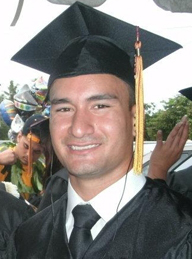
The Children’s Healthy Living (CHL) Program, housed at the University of Hawai‘i at Manoa, is pleased to announce that Mr. Caleb Scanlan was awarded a scholarship in its undergraduate program in Food Science and Human Nutrition.
Caleb is the son of Charles and Sandra Scanlan of Vaitogi. He graduated from Kanana Fou High School in 2010 and from the American Samoa Community College in May, 2012, with an Associate of Arts degree in Liberal Arts. While at ASCC, Caleb enjoyed the rigorous physical and mental training provided by its ROTC program; he served as the ROTC Commander. As an outstanding member of the American Samoa National Wrestling Team, Caleb represented American Samoa at the World Wrestling Championships in 2011, a coveted spot he earned by qualifying at the Oceana Championships in 2011. As Head Coach, he led the Tafuna High School Wrestling Team to winning the first Territorial ASHSAA High School Wrestling Championship in 2011.
Caleb will be joining other scholarship winners from Alaska, Commonwealth of the Northern Mariana Islands, Hawai‘i, Guam, and the Federated States of Micronesia at the University for an August 13-15 student orientation. He will then begin classes this September.
Caleb’s scholarship covers full tuition costs and a $18,000 stipend for living expenses. It also covers travel between Pago Pago and Honolulu and all expenses to attend a professional meeting each year. He will also receive an additional $2,000 to conduct a mandatory project in American Samoa on children’s health.
CHL is offering these scholarships in order to strengthen local capacity to address the global epidemic of childhood obesity, which is particularly severe in the Pacific. Obese children suffer academically and emotionally through absenteeism and low self-esteem. An overweight or obese child is likely to become an overweight or obese adult. Excess weight predisposes us to non-communicable diseases such as heart disease, stroke, type 2 diabetes, and several types of cancer. These diseases not only seriously deteriorate quality of life and shorten life expectancy of the sufferer, they are often emotionally stressful for other family members as well. And they place a heavy financial burden on families and society through increased health care costs.
Caleb’s post-graduation plans are to return to American Samoa to help teach youngsters and their parents the importance of eating a healthful diet and getting plenty of physical activity every day—lessons he credits to learning first at home. We wish him every success in his studies and to the success of CHL in its mission to improve the health outlook of our children and those throughout the region.
Alaska
CHL Alaska
In May and June 2012, CHL Alaska staff returned to our four partner communities–Anchorage, Fairbanks, Kenai, and Wasilla–to share the results of our early 2012 community meetings and to discuss plans for CHL activities this fall. We also reconvened our Local Advisory Committee for similar discussions. CHL Alaska staff found these meetings extremely helpful in focusing our plans and identifying community partners for intervention and measurement activities. We continue to benefit from great involvement from Head Start, Cooperative Extension Service (CES), and Public Health Nursing programs in each community, as well as interest from several local non-profits and municipal agencies.
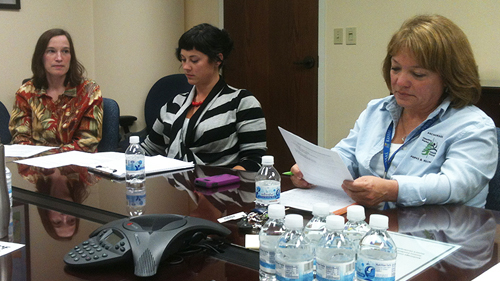
A major asset for the CHL Alaska effort is the state’s Obesity Prevention and Control Program, an effort of the Division of Public Health’s Chronic Disease Prevention and Health Promotion Section. The program has several initiatives, including community interventions, surveillance and evaluation, and health communication efforts. We recommend that you visit the program’s excellent website, which has great information and resources, and consider subscribing to its free e-listserv, which shares alerts about obesity prevention efforts, funding opportunities, and other news—much of it relevant to any location, not just Alaska! Visit: http://dhss.alaska.gov/dph/Chronic/Pages/Obesity/default.aspx

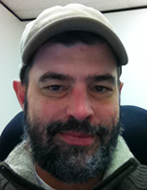
Over the summer, we brought our two CHL Alaska trainees on board, both in the UAF M.S. program in Natural Resources Management and Sustainability. Rachel Garcia just completed her master’s project focused on exploring the factors that prevent or support both the public’s access to, and the individual’s choice to use, sources of local food in the Tanana Valley, Alaska. She sees great potential in combining an understanding of equitable participation in alternative food systems with nutrition education and efforts to prevent childhood obesity. Ron Standlee-Strom has been working with the CHL project as technical staff since October 2011; he is interested in the interrelation of socioeconomic, nutritional, and environmental factors contributing to childhood obesity and the identification and removal of barriers to healthy lifestyles through community partnerships, involvement, and policies.
Commonwealth of the Northern Mariana Islands
CHL Commonwealth of the Northern Mariana Islands
The CNMI CHL Team had a very successful meeting with the Commissioner of Education (COE) along with her team on Friday, July 20, 2012 at the COE’s conference room. The purpose of the meeting was to engage the Commissioner along with key program personnel such as the Office of Curriculum, Instruction, and Assessment – Science/Health/HIV Coordinator, Parental Involvement Coordinator, Director of Head Start, Head Start Nutrition and Health Manager, and school representatives that would ensure the success of the CHL Project.

The Commissioner expressed her commitment to partnering with the CNMI CHL team in addressing childhood obesity and overall child wellness. The COE is very passionate and dedicated to ensuring the health and well-being of all children within the CNMI Public School System (PSS). During the meeting, the PSS team confirmed a meeting with school principals within the matched and temporal communities for the following week. As for the Head Start Centers, the Nutrition and Health Manager scheduled the meetings with the Head Start teachers during the week of their professional development day, the last week of August.
The CNMI Public School System (PSS) is ready to work hand-in-hand with the CNMI CHL team. With the support of the COE along with her team, we are extremely confident that the implementation of this project will be successful.
Freely Associated States of Micronesia
CHL Freely Associated States

The CHL FAS team has three new members. Mr. Rally Jim, based in Pohnpei, assumed a key leadership role as the CHL FAS Project Manager. Mr. Jim has been involved in the public health sector in Pohnpei for more than ten years and he brings a wealth of experience and expertise to CHL.

Ms. Julia Alfred joined the CHL team on a part-time basis as the Marshall Islands Site Manager. Her considerable experience in health and community development will be a valuable asset to CHL in the Marshalls and region in general.
Ms Emihner (Emi) Johnson has been the latest addition joing the team as the Outreach Education Assistant for Pohnpei State. Emihner has been working for Island Food Community of Pohnpei implementing community based nutrition programs focused on promoting traditional foods in the daily diet. She will continue this valuable work with a focus on young children and their parents. Efforts are underway to hire Outreach Education Assistants in the remaining jurisdictions.
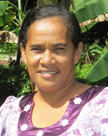
The FAS team has begun to conduct situational analysis in the Marshalls and the FSM. Mr. Jim has also initiated dialogue with the College of Micronesia to begin providing instructional support to the Associate of Science Program in Public Health.
We are also happy to welcome two CHL scholarship recipients to the University of Hawaii at Manoa. Neelma Skilling from Kosrae and Edumyle Otobed from Palau arrived at the UH campus in August to begin a Bachelors of Science program in Food Science and Human Nutrition in the Department of Human Nutrition, Food and Animal Sciences (see their photos in the CHL Yearbook).
Guam
CHL Guam

In the last quarter, much of the focus for the Guam CHL Program was centered on testing data collection and measurement instruments. Team members pretested food and activity logs, demographic, household and culture surveys. A total of six parents participated in helping to understand each of the survey’s readability and timing. Their feedback was important in strengthening the final instruments to be used during the CHL Measurement launch in late-October to early November 2012. As part of the continuing data and measurement efforts, the CHL team prepared for the Oct. 1-2 Measurement Standardization Training to be held on Guam. CHL Program Director Dr. Rachel Novotny and Assistant Director Dr. Marie Kainoa Fialkowski will conduct the two-day training.. Time and effort was devoted to securing training venue, preparing training materials and recruiting participants. In addition to the Guam CHL team, comprised of extension faculty and staff, 10 child volunteers and two Head Start nurses were invited to participate in the training.
Strengthening Community Ties
Strengthening community ties have been a pivotal aspect of the CHL program in implementing environmentally based intervention programs. Team members continued to strengthen community partnerships with organizations committed to child wellness and consumption of local produce by partnering with the island’s Non Communicable Disease Consortium and Micronesian Chefs Association. Extension faculty worked as committee members discussing partnership opportunities and strategies to increase adoption of healthy living behaviors. Team members also worked with Department of Education, Head Start Program Director, Cathy Schroeder, to discuss program plans. Ongoing meetings with Ms. Schroeder resulted in Guam CHL Co-Lead Investigator Dr. Rachael Leon-Guerrero meeting with Head Start teaching staff on August 20 at the Hilton Hotel in Tumon. The outcome of the meeting was to decide on the total number of child participants and potential dates for Guam “Nutrition Days” to coincide with the CHL measurement launch in November.
Hawai‘i
CHL Hawai‘i
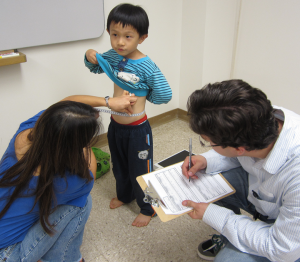
In October, the CHL Hawaii team will begin the Measurement Phase of the CHL Program by collecting data to serve as a baseline to the CHL community action program. The measurements will also help alleviate the lack of health data about Hawai‘i’s young children. CHL will assess the behaviors and anthropometry of children living in selected communities on O‘ahu, Maui, Hawai‘i Island, Kaua‘i and Moloka‘i. Trained CHL staff will measure height, weight, and waist circumference of the children and will also look at their necks for a condition that may indicate risk for diabetes called acanthosis nigricans. Additionally, some of these children will wear accelerometers for six days to measure the intensity of their physical activity.
CHL aims to learn more about what children eat and drink; the activities they do, including watching TV and their use of video games; and their sleep. Parents will be asked to complete forms about their children and sleep, video games and TV. Parents will also be asked to complete logs for two days of their child’s activities and what their child eats and drinks.
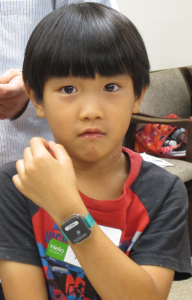
The goal is to assess 180 children between the ages of three to five years in each selected community. To satisfy this goal, we will be partnering with schools (e.g., preschools, Head Start, charter schools, or kindergartens) or other associated programs. Children may also be recruited from venues, such as, community health care facilities and government programs such as the USDA’s Supplemental Feeding Program for Women, Infants and Children (WIC).
The completion of the baseline measurement period is planned for February 2013. A repeat of all these measurements will be done at 24 months, while only height, weight, and waist circumference data will be collected again in 12 months.
After the initial measurement phase, CHL activities to promote children’s health through community partnerships will begin in selected communities in 2013.
